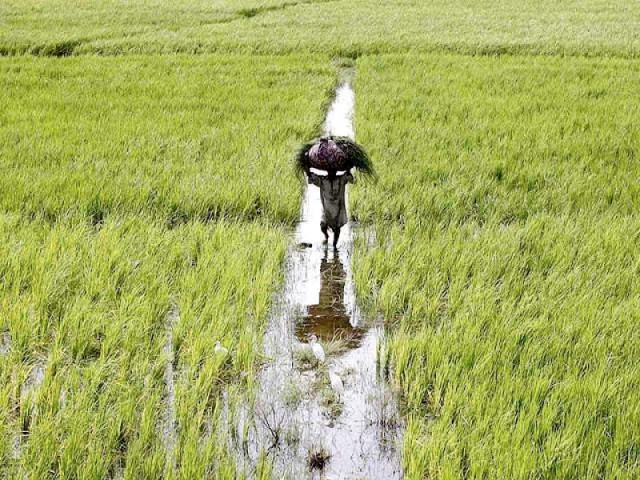Climate change threatens food security
Experts warn that heatwaves and water stress can prove deadly

Climate change and extreme weather events are contributing to a wide range of health and food security risks around the world, asserted experts as the spoke at a seminar on Monday.
The event was titled Pakistan's Challenges of Climate Change, Health, and Nutrition in the Context of Sustainable Development Goals: Strategies for Change. It was organised by Aga Khan University's Institute for Global Health and Development (IGHD).
These threats are particularly severe in low and middle income countries like Pakistan that are often the least able to respond, they said. The panelists called for urgent and proactive actions to meet the many challenges posed by climate change, whilst achieving sustainable development foals (SDGs) by 2030 in Pakistan.
Read: Vegetable farmers battle climate change, dilapidated roads, rising costs
They noted that Pakistan ranks 154 out of 189 countries and territories on the Human Development Index 2020.
UN Sustainable Development Solutions Network President and Keynote Speaker Professor Jeffrey Sachs spoke about the global network and extended support to the SDSN Pakistan hub being set up under the IGHD umbrella.
He expressed serious concern about the impact of global conflicts on the progress of sustainable development, stressing the need for an approach in which the best minds around the world are working collaboratively to find common solutions to address the climate change crisis.
"In the midst of war and conflicts in the world, we are on a trajectory to breach 1.5 degrees Celsius limit in a decade, or even faster. In Pakistan, with deserts, water stress and heatwaves, this can be deadly," he stated.
Read: Pakistan’s climate refugees
Increasing extreme climate events, such as floods, prolonged heatwaves, and droughts, are having a particularly negative impact on the health, mental health and well-being of vulnerable and marginalised communities across Pakistan, including adolescents and women.
This was addressed in the second keynote speech by Javed Jabbar, policy analyst and former senator.
Jabbar underscored the impact of Pakistan's choices and its need to find a way forward where the country's resilience and adaptability to calamities arising from climate change are concerned. "There is a dire need for structural reforms post the 18th Amendment, to ensure cohesion between the federal and provincial health systems, and especially the integration of the population welfare department and health departments," he asserted.
Strengthening vulnerable populations is key and Prince Rahim Aga Khan, addressing the seminar via video, shed light on the Aga Khan Development Network's commitment to groups in the regions it serves.
Read: ‘Skin allergies indicator of climate change’
"We build climate resilience by working with communities, alongside government, civil society and private sector so that in the face of climate change, people not only survive but also thrive," he said.
IGHD Founding Director Dr Zulfiqar A. Bhutta highlighted the need to develop capacity for coordinated action on climate change, health, and nutrition in Pakistan. He presented detailed data on climate change's impact on agriculture and food security.
"There is slow and subtle, yet definite impact of climate change, extreme weather events, and rise in temperatures on crop nutrient.
Published in The Express Tribune, March 8th, 2022.



















COMMENTS
Comments are moderated and generally will be posted if they are on-topic and not abusive.
For more information, please see our Comments FAQ